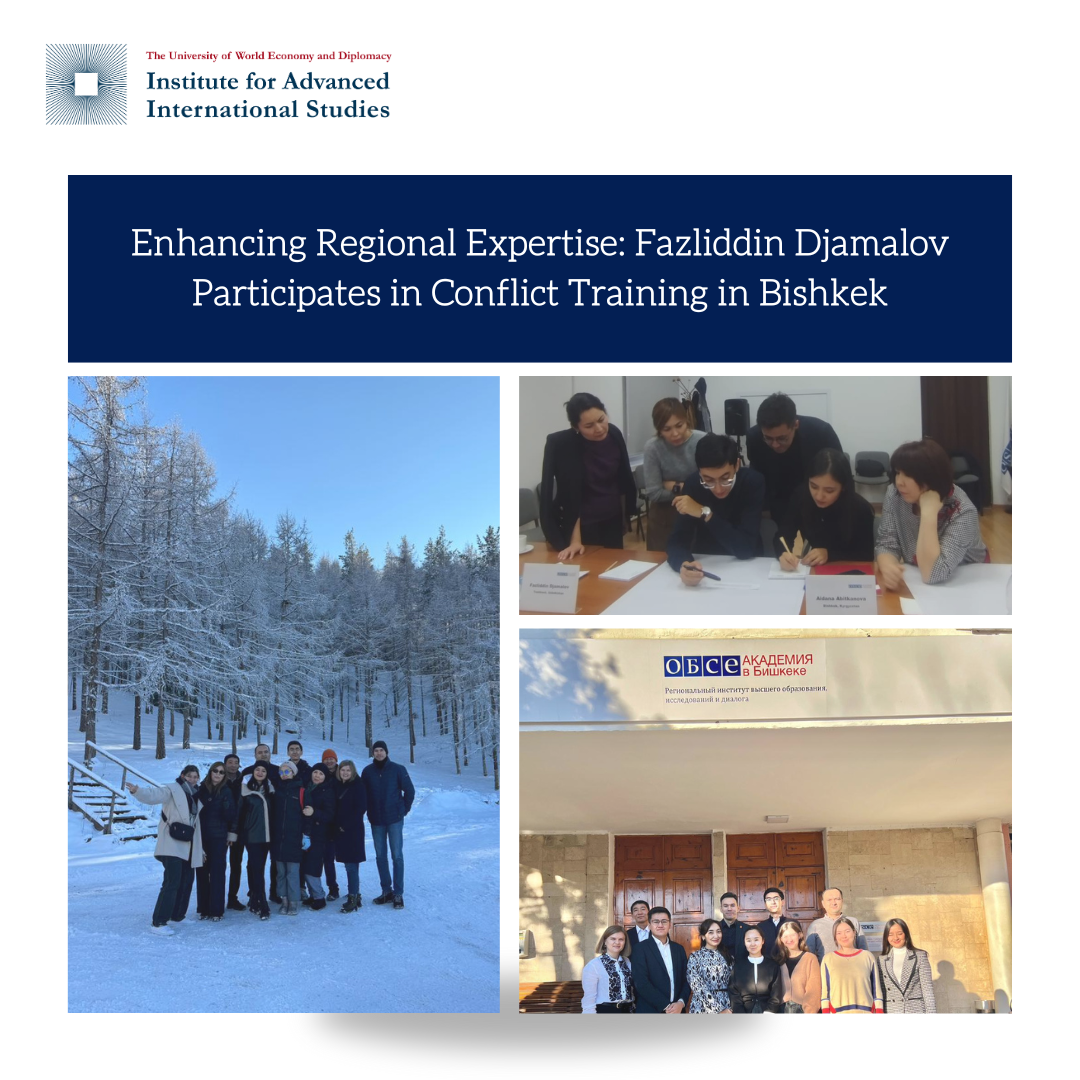
From 12 to 18 November, Fazliddin Djamalov, Senior Research Fellow at the Centre for American Studies, participated in an intensive training programme on conflict studies in Bishkek, Kyrgyzstan. The training, co-organised by the OSCE Academy in Bishkek and CRISP (Berlin, Germany) and supported by the Norwegian Institute of International Affairs, gathered leading academics and researchers from Kazakhstan, Kyrgyzstan, and Uzbekistan, creating a vibrant platform for intellectual exchange on conflict resolution methodologies.
The opening session was inaugurated by Bedilbai Mamadiev, Head of Research and Training at the OSCE Academy. He provided an overview of the Academy’s academic and research endeavours and highlighted its aspirations to advance scientific and educational initiatives. Contributions from session coordinators, including Ulugbek Nurimbetov, founder of the Institute for Peace and Development of Kyrgyzstan, and Katerina Pavlova, senior advisor at CRISP, offered an insight into their organisations’ conflict resolution work across different societal levels. Participants engaged in a candid discussion with the interim director of the OSCE Academy, Pal Daney, who shared updates on the Academy’s expansion plans, including its campus development initiatives.
The training spotlighted foundational principles of the Western school of conflict studies, with references to the seminal work of Norwegian sociologist Johan Galtung and his typologies of conflict. Novel approaches were also explored, including actor mapping, the PIN model (Position-Interest-Need), and the Conflict Tree methodology, offering participants robust tools for analysing and addressing conflicts.
The programme integrated innovative pedagogical methods, including role-playing games to enhance understanding of conflict resolution. Participants actively engaged in the simulation game “Kodori”, developed by CRISP, which fostered practical application of theoretical insights. A cultural excursion to the ethnographic complex “Supara Chunkurchak” further enriched the programme, acquainting attendees with the traditions of the region’s nomadic communities.
Fazliddin Djamalov’s participation underscored the importance of regional academic and research collaborations in addressing complex geopolitical challenges, paving the way for further engagements in conflict studies and related fields.